Announcement
Collapse
Forum Rules (Everyone Must Read!!!)
1] What you CAN NOT post.
You agree, through your use of this service, that you will not use this forum to post any material which is:
- abusive
- vulgar
- hateful
- harassing
- personal attacks
- obscene
You also may not:
- post images that are too large (max is 500*500px)
- post any copyrighted material unless the copyright is owned by you or cited properly.
- post in UPPER CASE, which is considered yelling
- post messages which insult the Armenians, Armenian culture, traditions, etc
- post racist or other intentionally insensitive material that insults or attacks another culture (including Turks)
The Ankap thread is excluded from the strict rules because that place is more relaxed and you can vent and engage in light insults and humor. Notice it's not a blank ticket, but just a place to vent. If you go into the Ankap thread, you enter at your own risk of being clowned on.
What you PROBABLY SHOULD NOT post...
Do not post information that you will regret putting out in public. This site comes up on Google, is cached, and all of that, so be aware of that as you post. Do not ask the staff to go through and delete things that you regret making available on the web for all to see because we will not do it. Think before you post!
2] Use descriptive subject lines & research your post. This means use the SEARCH.
This reduces the chances of double-posting and it also makes it easier for people to see what they do/don't want to read. Using the search function will identify existing threads on the topic so we do not have multiple threads on the same topic.
3] Keep the focus.
Each forum has a focus on a certain topic. Questions outside the scope of a certain forum will either be moved to the appropriate forum, closed, or simply be deleted. Please post your topic in the most appropriate forum. Users that keep doing this will be warned, then banned.
4] Behave as you would in a public location.
This forum is no different than a public place. Behave yourself and act like a decent human being (i.e. be respectful). If you're unable to do so, you're not welcome here and will be made to leave.
5] Respect the authority of moderators/admins.
Public discussions of moderator/admin actions are not allowed on the forum. It is also prohibited to protest moderator actions in titles, avatars, and signatures. If you don't like something that a moderator did, PM or email the moderator and try your best to resolve the problem or difference in private.
6] Promotion of sites or products is not permitted.
Advertisements are not allowed in this venue. No blatant advertising or solicitations of or for business is prohibited.
This includes, but not limited to, personal resumes and links to products or
services with which the poster is affiliated, whether or not a fee is charged
for the product or service. Spamming, in which a user posts the same message repeatedly, is also prohibited.
7] We retain the right to remove any posts and/or Members for any reason, without prior notice.
- PLEASE READ -
Members are welcome to read posts and though we encourage your active participation in the forum, it is not required. If you do participate by posting, however, we expect that on the whole you contribute something to the forum. This means that the bulk of your posts should not be in "fun" threads (e.g. Ankap, Keep & Kill, This or That, etc.). Further, while occasionally it is appropriate to simply voice your agreement or approval, not all of your posts should be of this variety: "LOL Member213!" "I agree."
If it is evident that a member is simply posting for the sake of posting, they will be removed.
8] These Rules & Guidelines may be amended at any time. (last update September 17, 2009)
If you believe an individual is repeatedly breaking the rules, please report to admin/moderator.
You agree, through your use of this service, that you will not use this forum to post any material which is:
- abusive
- vulgar
- hateful
- harassing
- personal attacks
- obscene
You also may not:
- post images that are too large (max is 500*500px)
- post any copyrighted material unless the copyright is owned by you or cited properly.
- post in UPPER CASE, which is considered yelling
- post messages which insult the Armenians, Armenian culture, traditions, etc
- post racist or other intentionally insensitive material that insults or attacks another culture (including Turks)
The Ankap thread is excluded from the strict rules because that place is more relaxed and you can vent and engage in light insults and humor. Notice it's not a blank ticket, but just a place to vent. If you go into the Ankap thread, you enter at your own risk of being clowned on.
What you PROBABLY SHOULD NOT post...
Do not post information that you will regret putting out in public. This site comes up on Google, is cached, and all of that, so be aware of that as you post. Do not ask the staff to go through and delete things that you regret making available on the web for all to see because we will not do it. Think before you post!
2] Use descriptive subject lines & research your post. This means use the SEARCH.
This reduces the chances of double-posting and it also makes it easier for people to see what they do/don't want to read. Using the search function will identify existing threads on the topic so we do not have multiple threads on the same topic.
3] Keep the focus.
Each forum has a focus on a certain topic. Questions outside the scope of a certain forum will either be moved to the appropriate forum, closed, or simply be deleted. Please post your topic in the most appropriate forum. Users that keep doing this will be warned, then banned.
4] Behave as you would in a public location.
This forum is no different than a public place. Behave yourself and act like a decent human being (i.e. be respectful). If you're unable to do so, you're not welcome here and will be made to leave.
5] Respect the authority of moderators/admins.
Public discussions of moderator/admin actions are not allowed on the forum. It is also prohibited to protest moderator actions in titles, avatars, and signatures. If you don't like something that a moderator did, PM or email the moderator and try your best to resolve the problem or difference in private.
6] Promotion of sites or products is not permitted.
Advertisements are not allowed in this venue. No blatant advertising or solicitations of or for business is prohibited.
This includes, but not limited to, personal resumes and links to products or
services with which the poster is affiliated, whether or not a fee is charged
for the product or service. Spamming, in which a user posts the same message repeatedly, is also prohibited.
7] We retain the right to remove any posts and/or Members for any reason, without prior notice.
- PLEASE READ -
Members are welcome to read posts and though we encourage your active participation in the forum, it is not required. If you do participate by posting, however, we expect that on the whole you contribute something to the forum. This means that the bulk of your posts should not be in "fun" threads (e.g. Ankap, Keep & Kill, This or That, etc.). Further, while occasionally it is appropriate to simply voice your agreement or approval, not all of your posts should be of this variety: "LOL Member213!" "I agree."
If it is evident that a member is simply posting for the sake of posting, they will be removed.
8] These Rules & Guidelines may be amended at any time. (last update September 17, 2009)
If you believe an individual is repeatedly breaking the rules, please report to admin/moderator.
See more
See less
Nagorno-Karabagh: Military Balance Between Armenia & Azerbaijan
Collapse
X
-
Re: Nagorno-Karabagh: Military Balance Between Armenia & Azerbaijan
Originally posted by AstalaVist View Post
A very interesting video about liberation of Lachin. I certainly suggest to watch the whole video.
It was really interesting to watch what kind of miserable situation was on the Azeri side during the battle. They are all crying, they are blame eachother as coward. And i think the most interesting part was how their very famus journalist Chingiz Mustafayev yelling around as -where escaped commanders of this division?-
Well, It's really funny to thinking how now they are talking about taking back -their lands-. especially after wathcing this video.
Those "men" were pitiful and they're probably all dead.General Antranik (1865-1927): “I am not a nationalist. I recognize only one nation, the nation of the oppressed.”
Comment
-
Re: Nagorno-Karabagh: Military Balance Between Armenia & Azerbaijan
now you see why they have to invent or steal heroes, because they are a pitiful group of people.Originally posted by Joseph View PostThose "men" were pitiful and they're probably all dead.
When i say steal i mean how azeris claim Babak Khorramdin, the Iranian hero, is azeri.
Comment
-
Re: Nagorno-Karabagh: Military Balance Between Armenia & Azerbaijan
Вердиев все же умер
14 июня в Бакинском центральном военном клиническом госпитале умер капитан Ильгар Вердиев. И.Вердиев вместе с другим офицером – Заиром Вердиевым, 10 июня подорвался на мине на территории оккупированного Азербайджанои Шаумянского района Республики Арцах.
И.Вердиев стал 47-ой официально признанной потерей вооруженных сил Азербайджана в текущем году. Предыдущая потеря имела место 8 июня, когда на мине подорвался 19-летний аскер вооруженных сил Азербайджана Сеадетдин Муслим оглу Мамедов.
Согласно данным Voskanapat.info, вооруженные силы Азербайджана в текущем году потеряли, кроме официально подтвержденных 47 потерь, еще, как минимум, 41 аскера, большая часть которых была уничтожена армянскими бойцами в ходе боестолкновений 4-8 июня.
Voskanapat.info
47+41=88
Comment
-
Re: Nagorno-Karabagh: Military Balance Between Armenia & Azerbaijan
Verdiyev still deadOriginally posted by Vrej1915 View PostВердиев все же умер
14 июня в Бакинском центральном военном клиническом госпитале умер капитан Ильгар Вердиев. И.Вердиев вместе с другим офицером – Заиром Вердиевым, 10 июня подорвался на мине на территории оккупированного Азербайджанои Шаумянского района Республики Арцах.
И.Вердиев стал 47-ой официально признанной потерей вооруженных сил Азербайджана в текущем году. Предыдущая потеря имела место 8 июня, когда на мине подорвался 19-летний аскер вооруженных сил Азербайджана Сеадетдин Муслим оглу Мамедов.
Согласно данным Voskanapat.info, вооруженные силы Азербайджана в текущем году потеряли, кроме официально подтвержденных 47 потерь, еще, как минимум, 41 аскера, большая часть которых была уничтожена армянскими бойцами в ходе боестолкновений 4-8 июня.
Voskanapat.info
47+41=88
June 14 in Baku Central Military Clinical Hospital died Captain Ilgar Verdiyev. I.Verdiev along with another officer - Zaire Verdiyev, June 10, struck a mine in the occupied Azerbaydzhanoi Shahumyan region of Artsakh.
I.Verdiev became the 47th officially recognized the loss of the armed forces of Azerbaijan this year. Previous loss took place on June 8, when a mine exploded under a 19-year armed forces of Azerbaijan Asker Seadetdin Muslim oglu Mammadov.
According Voskanapat.info, the Azerbaijani armed forces this year have lost, except for loss of 47 officially confirmed yet, at least, 41 Asker, most of which was destroyed by Armenian fighters in clashes during the June 4-8.
Voskanapat.infoGeneral Antranik (1865-1927): “I am not a nationalist. I recognize only one nation, the nation of the oppressed.”
Comment
-
Re: Nagorno-Karabagh: Military Balance Between Armenia & Azerbaijan
TIME FOR AZERBAIJAN TO CEASE ITS OCCUPATION OF TERRITORIES BELONGING TO ARMENIA
by Dr. Ara Papian
Bay Area Indymedia
June 13 2012
San Francisco, CA
To ensure stability in the region, prevailing arbitration over occupied
lands must be implemented.
June 8, 2012 -- Various ways have been proposed to resolve the
Nagorno-Karabakh conflict over the years. Lately, on the 5th of June,
2012, a discussion was held at the Woodrow Wilson Center in Washington
with the participation of four experts entitled, "Nagorno-Karabagh:
Will the Frozen Conflict Turn Hot?". It is worth noting, by the way,
the coincidence of the event's date and content with the attacks
carried out by Azerbaijan on the Republic of Armenia on the night of
the 4th-5th of June. However, let us turn to the actual matter at hand.
Unfortunately, I was not present at that discussion and am not familiar
with its details. Regardless, one point in particular among the issues
raised drew my attention, and I would like to turn to it.
Wayne Merry, a senior fellow at the American Foreign Policy Council,
Washington, spoke of resolving the Nagorno-Karabakh conflict through
forceful arbitration. According to news sources, he said, "Mediators
don't negotiate: both sides - Azerbaijan and Armenia don't let their
job work. Now, in this case, it's time to move from mediation to
forceful arbitration" [1].
This idea differs in essence from other ones that have been expressed
with regards to resolving the Nagorno-Karabakh conflict until now.
Whereas the basic principle till today was that the parties to the
conflict must themselves arrive at a mutually-acceptable conclusion,
and the mediator states - in this case, the Minks Group and its three
co-chairs - would assist in that process and serve as the guarantors
of the implementation of any agreement, now for the first time the
idea has been expressed of a resolution without the agreement of the
parties, and perhaps even one that could go against their will.
Considering the fact that American foreign policy is customarily
developed first at the level of experts who express the ideas and
get them into circulation, after which, given some circumstances,
they get carried out as real policy, this idea is worth analysing
in some detail, even more so given that the organisation Wayne Merry
represents, the American Foreign Policy Council, has great influence
on new approaches being developed in US policy. Wayne Merry himself
is a seasoned diplomat, with a decades-long career spanning the
State Department and the Department of Defense. It is important to
emphasise that any enforcement - and, in this case, that applies to the
implementation of a forceful arbitration in a war zone - will require
the presence of a large number of "peacekeepers". It is also clear
that many states would have interest in placing a large number of
"peacekeepers" in Nagorno-Karabakh, that is, on the northern border
of Iran.
Now let us take a look at just how new this innovative-sounding
idea by Wayne Merry is. When it comes down to it, this idea is not
new at all. In principle, the arbitration as a resolution to this
conflict was first adopted by the Paris Peace Conference (1919-1920),
and then by the League of Nations that arose from it and followed it
(1920-1946), and, naturally, it was passed on to the legal successor
of the latter, the United Nations.
Diplomats, politicians and other public figures, and experts often
refer to the Nagorno-Karabakh issue as a "frozen conflict". This
is an absolutely accurate characterisation, but the main mistake is
that many of them measure the "freezing" from the 1990s. That is not
the case at all in reality. The conflict arose from that time when,
in 1918, the Azerbaijani Republic, such an entity being established
for the first time in history, claimed the entirety of the Baku and
Elizavetpol administrative units of the former Russian Empire without
any legal or other basis and without considering the demographics of
either of those territories. Of course, this approach was unacceptable
for the Great Powers at the Paris Peace Conference - the United States,
the British Empire, France, Italy, and Japan, as the creation of new
states and their frontiers were not to be based on the administrative
divisions of former states, but on the principle of self-determination
of peoples as brought forth by US President Woodrow Wilson.
And so, when during the first London conference of the Paris Peace
Conference (12 February to 10 April, 1920), the issue of the borders
of the Republic of Armenia was once again taken up in detail on the
16th of February [2], it was decided to create a commission "on the
boundaries of a new independent State of Armenia" comprised of one
member each of the Great Powers [3]. Accordingly, the commission was
established on the 21st of February, 1920, with representatives of
the British Empire, France, Italy, and Japan [4], which prepared the
"Report and Proposals of the Commission for the Delimitation of the
Boundaries of Armenia" [5] dated the 24th of February, 1920, put on
the agenda for discussion on the 27th of February [6].
The president of that session, the Foreign Secretary of the British
Empire, Lord Curzon, in speaking of the territorial issues between
the republics of Armenia and Azerbaijan, said that, "the regions of
Karabagh, Zangezur and Nakhitchevan were in dispute. The population
there was chiefly Armenian, except for a part which was almost
wholly Tartar" [7]. I find it necessary to stress that this part
does not refer to Nagorno-Karabakh (Mountainous Karabakh), nor even
to that territory created out of a part of it later, known as the
Nagorno-Karabakh Autonomous Oblast, but to Karabakh itself, which
includes the Karabakh Plains.
This document that expressed the joint view of Britain, France, Italy,
and Japan on the borders in the southern Caucasus, called for a period
of waiting so that the parties would themselves come to an agreement,
only arbitrating on the bondaries in case of a failure of the parties
to do so. "As regards the boundary between the State of Armenia and
Georgia and Azerbaijan, the Commission considers that, it is advisable
for the present to await the results of the agreement, provided for
in the treaties existing between the three Republics, in regard to the
delimitation of their respective frontiers by the States themselves.
In the event of these Republics not arriving at an agreement respecting
their frontiers, resort must be had to arbitration by the League of
Nations, which would appoint an interallied Commission to settle
on the spot the frontiers referred to above, taking into account,
in principle, ethnographical data."
As is clear from the above, the principle of resolving by
arbitration the issue of the Armenia-Azerbaijan border, as well as the
Armenia-Georgia on, was proposed and adopted as early as the 24th of
February, 1920, by this joint document of the Great Powers. Moreover
and most importantly, the principle of delimitation was made clear:
"taking into account, in principle, ethnographical data". Accordingly,
then, the report had a map annexed to it [8]. According to that
document, taking the demographic make-up of the South Caucasus of 1920
into account, not only was Nagorno-Karabakh (Mountainous Karabakh)
considered part of the Republic of Armenia, but so was also a large
part of the Karabakh Plains.
It is also of great importance that this document was included as
well in the Full Report of the Arbitral Award of US President Woodrow
Wilson of the 22nd of November, 1920, as document No. 2 in Annex I,
indicating that the US accepted the arbitration, the arbitral nature
and legality of this document. Those clauses were also included in the
Treaty of Sèvres (of the 10th of August, 1920), as Article 92: "The
frontiers between Armenia and Azerbaijan and Georgia respectively will
be determined by direct agreement between the states concerned. In the
either case the States concerned have failed to determine the frontier
by agreement at the date of the decision referred to in Article 89,
the frontier line in question will be determined by the Principal
Allied Powers, who will also provide for its being traced on the spot".
In sum, one can draw the following conclusion. The proposal by Wayne
Merry to resolve the Nagorno-Karabakh conflict by arbitration is
completely acceptable and realistic, as it not only expresses the
decision already codified by Britain, France, Italy, and Japan,
but also, which is more important, it is based on as democratic
a principle as "ethnographical data". Naturally, a basis for the
arbitration can only be found on the ethnographic data of 1920,
because whatever happened since 1920 - the forcible occupation of the
independent republics of Azerbaijan and Armenia by the armed forces
of a foreign state, the 11th Red Army, followed by their annexation
to Soviet Russia in its new veneer of the Soviet Union - was in utter
violation of international law, and, as goes the maxim in international
law, ex injuria jus non oritur - law does not arise from injustice.
Consequently, I believe that the international community and, first
and foremost, the United States must follow up on the proposal by
the American expert Wayne Merry and implement the decision of the
international document that already exists based on the principle of
arbitration; that is, they must compel the Republic of Azerbaijan to
withdraw its forces from the territory that belongs to the Republic of
Armenia - the Karabakh Plains and Nakhichevan (by my rough estimation,
14.000 sq.km and 5.400 sq.km, respectively).
As long as the Republic of Azerbaijan maintains its occupation of not
just 19.400 sq.km of territory of the Republic of Armenia, but also
continues to demonstrate claims towards territory of the Republic of
Armenia currently liberated from Azerbaijani occupation, there will
not be stability in the region.
Great Britain, France, Italy, and Japan, as well as the United States
of America, must not spare any efforts in implementing their very
decision as soon as possible.
References 1. http://www.arminfo.info/index.cfm 2. Documents on British
Foreign Policy 1919-1939, (ed. by R. Butler and J. Bury) First Series,
v. VII, London, 1958, pp. 81-86. Document # 10: Consideration of the
future boundaries of Armenia: decision to appoint an Allied commission
to report thereupon, Feb. 16, 1920.
[hereafter, DBFP] 3. Ibid, p. 86.
4. Ibid, Document #20: Decisions of parts III and IV of the draft
synopsis of the Turkish treaty (political clauses), p. 178.
5. The entire document is available in Arbitral Award of the President
of the United States of America Woodrow Wilson: Full Report of the
Committee upon the Arbitration of the Boundary between Turkey and
Armenia, Washington, November 22, 1920, (prepared by Ara Papian).
Yerevan, 2011, pp. 98-112.
6. DBFP, Document # 34, p. 280.
7. Ibid, p. 281.
8. The map is kept in the National Archives and Records Administration
and is published in Arbitral Award of the President of the United
States of America Woodrow Wilson: Full Report of the Committee upon
the Arbitration of the Boundary between Turkey and Armenia, Washington,
November 22, 1920, (prepared by Ara Papian). Yerevan, 2011, p. 328.
-end-
His Excellency Ara Papian was the Ambassador of Armenia to Canada
(2000-2006). He is currently Head of the Modus Vivendi Centre, whose
mission is to solve regional problems by peaceful means through
International Law.
Comment
-
Re: Nagorno-Karabagh: Military Balance Between Armenia & Azerbaijan
Just wondering...how does Voskanapat or our MoD know that for sure? It would be mean either we spotted them dying from a distance, or their bodies still on our side of the border?at least, 41 Asker, most of which was destroyed by Armenian fighters in clashes during the June 4-8.
Comment
-
Հայաստանում կանցկացվեն հատուկ զորավարժ&#
Սարգիս Հարությունյան
Հրապարակված է՝ 14.06.2012
Կառավարության նիստի ավարտին այսօր Պաշտպանության նախարար Սեյրան Օհանյանը հայտարարեց, որ հունիսի վերջին երկրում անցկացվելու են հատուկ զորավարժություններ, որոնց ժամանակ փորձարկվելու է, թե ինչպես է գործելու Հայաստանի պետական համակարգը պատերազմի ժամանակ:
Նախարարն ընդգծեց, որ զորավարժությունների ընթացքում «Հայաստանի Հանրապետությունը բերվելու է բարձր մարտական պատրաստականության»:
Ինչպես տեղեկացրեց նախարարը, այս տարվա սեպտեմբերին Հայաստանում անցկացվելու են ՀԱՊԿ (Հավաքական անվտանգության պայմանագրի կազմակերպության) Արագ արձագանքման հավաքական ուժերի «Փոխգործակցություն-2012» համատեղ զորավարժությունները:
Այդ զորավարաժություններին ընդառաջ հայկական զինված ուժերում անցկացվում են հրամանատարաշտաբային զորավարժություններ, որոնց, ինչպես ամեն տարի, մասնակցում են նաեւ բոլոր պետական մարմինների ներկայացուցիչները:
Սակայն Սեյրան Օհանյանի խոսքից հայտնի դարձավ, որ այս տարի այդ հրամանատարաշտաբային զորավարաժություններին ավելանալու է նաեւ հետեւյալ կարեւոր տարրը. - ««25, 26, 27-ին անց է կացվելու ռազմաքաղաքական փուլը` «Ռազմապետական համակարգի ծավալումը պատերազմական ժամանակաշրջանում եւ ագրեսիայի ետ մղման հիմնական միջոցառումների կազմակերպումը» թեմայով»:
Նրա խոսքից նաեւ պարզ դարձավ, որ նշված զորվարաժությունների ժամանակ, փաստորեն, ստուգվելու է, թե ՀԱՊԿ կառույցներն ինչպես են գործելու` եթե կազմակերպության անդամ Հայաստանը ենթարկվի ռազմական ագրեսիայի: Օհանյանը մանրամասնեց, որ զորավարժությունների ընթացքում «նախապատրաստվելու է Հայաստանի նախագահի դիմումը ՀԱՊԿ-ի ղեկավարությանը` մեզ աջակցելու ուղղությամբ». - «Անց է կացվելու Հայաստանի Հանրապետության բերումը բարձր մարտական պատրաստականության եւ դրա ֆոնի ներքո մենք նախապատրաստելու ենք համապատասխան հրամանագրեր` ռազմական դրության բերման, զորահավաքի անցկացման, ագրեսիայի դիմագրավման, նաեւ` Հայաստանի Հանրապետության նախագահի դիմումը ՀԱՊԿ-ի ղեկավարությանը` մեզ աջակցելու ուղղությամբ»:
Իր խոսքի վերջում պաշտպանության նախարարը դիմեց վարչապետ Տիգրան Սարգսյանին, որպեսզի հանձնարարություն տրվի կառավարության բոլոր անդամներին` իրենց ենթակայության ներքո գտնվող գերատեսչությունները նշված զորավարժություններին նախապաստրաստելու համար:
Վարչապետը արձագանքեց. - «Շատ լավ: Հիմա մենք ֆիքսենք հանձնարարական բոլոր նախարարություններին, ղեկավարներին, որպեսզի իրենց նախարարության համապատասխան ստորաբաժանումները եւ պատասխանատու անձինք ղեկավարվեն Սեյրան Օհանյանի կողմից բարձրացված այդ հարցերի կազմակերպման սկզբունքներով»:
«Ազատություն» ռադիոկայանին Պաշտպանության նախարարությունից այսօր փոխանցեցին, որ նման կարգի զորվարաժություններ Հայաստանում անցկացվում են առաջին անգամ:
Հատկանշական է, որ զորավարժությունները հետեւում են այս ամսվա սկզբին հայ-ադրբեջանական սահմանի տարբեր հատվածներում տեղի ունեցած հայտնի միջադեպերին, որոնց հետեւանքով ադրբեջանական կողմը տվեց հինգ զոհ, ըստ Ադրբեջանի պաշտպանության նախախարության` եւս երկուսը զոհվեցին դժբախտ պատահարի հետեւանքով: Իսկ հայկական կողմից զոհվեցին չորս զինծառայողներ:
Ադրբեջանական կողմի դիվերսիոն հարձակումներից հետո հայտարարությամբ հանդես եկավ նախագահ Սերժ Սարգսյանը` նշելով, որ Հայաստանը անպատասխան չի թողնելու «իր քաղաքացիների, պետական սահմանների եւ Լեռնային Ղարաբաղի դեմ ուղղված որեւէ գործողություն»:
Հայ-ադրբեջանական աճող լարվածության ֆոնին ուշագրավ էր Ռուսաստանի Հարավային ռազմական օկրուգի մամուլի քարտուղար, գնդապետ Իգոր Գորբուլի` օրերս մատուցած տեղեկությունը, թե Հայաստանում տեղակայված 102-րդ ռուսական ռազմակայանի օդուժն ավելացրել է ռազմական ինքնաթիռների թռիչքների հաճախականությունը մոտ 20 տոկոսով, եւ որ օդաչուները ուսումնական թռիչքների ընթացքում մարտական իրավիճակների են պատրաստվում: Ներկայացնելով Գորբուլի այդ խոսքերը` ամերիկյան հեղինակավոր The New York Times պարբերականը, օրինակ, գրեց, թե այդ կերպ Մոսկվան նախազգուշացնում է, որ կարող է ցանկացած պահի միջամտել իրավիճակին:
Հայաստանի պաշտպանության նախարարի այսօրվա հայտարարության առնչությամբ ռազմական փորձագետ Արծրուն Հովհաննիսյանը «Ազատություն» ռադիոկայանի հետ զրույցում կարծիք հայտնեց, թե նման կարգի լայնածավալ զորավարաժությունների անցկացումը վկայում է, որ Հայաստանը նոր` ավելի բարձր մակարդակի է անցնում բանակաշինության, իր պաշտպանությունը կազմակերպելու գործում:
«Իսկ ինչ մնում է պետական ամբողջ ապարատը բերելու ինչ-որ ռազմական դրության կամ համալրման այդ պրոցեսները պահեստազորի եւ այլն, եւ այլն, տեսեք մի բան` մենք պատերազմի մեջ գտնվող պետություն ենք, որը ուշ թե շուտ պիտի հասնի մի օր այն իրավիճակին, որ ցանկացած պահի շատ արագությամբ հնարավոր լինի ամբողջ պետական ապարատը եւ ռազմական մեքենան բերել ռազմական դրության, ինչպես արվում է Իսրայելում», - հավելեց Հովհաննիսյանը:
Քաղաքական եւ միջազգային հետազոտությունների հայկական կենտրոնի փորձագետ Ռուբեն Մեհրաբյանը ուշադրություն հրավիրեց այն հանգամանքի վրա, որ պաշտոնական Երեւանը հրապարակայանացնում է նման կարգի զորավարժությունների անցկացման մասին տեղեկությունը, ինչը փորձագետը կապում է նաեւ ղարաբաղայան բանակցությունների առաջիկա նոր փուլի հետ:
«Այս մեսիջի բովանդակությունը հետեւյալն է` հանկարծ չմտածեք, որ դուք կարող եք ուժով մեզ պարտադրել ինչ-որ մեր համար ոչ ցանկալի լուծումներ: Կամ ուժով մեզ պատրադրել ինչ-որ միակողմանի լուծումներ», - «Ազատություն» ռադիոկայանին ասաց փորձագետը:
Comment
-
Re: Nagorno-Karabagh: Military Balance Between Armenia & Azerbaijan
«Տաք» պատերազմի խրտվիլակը
Մեր զրուցակիցն է «Ղարաբաղ» կոմիտեի անդամ Աշոտ Մանուչարյանը
Պարոն Մանուչարյան, վերջին մեկ ամսվա ընթացքում պատերազմի վերսկսման մասին խոսակցությունները շատ տարբեր են: Առավել հաճախ հնչում է այն տեսակետը, որ լայնածավալ պատերազմ, այնուամենայնիվ, չի լինի: Ըստ Ձեզ` որքանո՞վ են իրական և որքանո՞վ մտացածին պատերազմի հնարավոր վերսկսման մասին խոսակցությունները:
Վերջին մեկ ամսվա ընթացքում կտրուկ աճել են պատերազմի մասին խոսակցությունները, պատերազմի նշույլներ պարունակող գործողությունները: Ի դեպ, պատերազմի վերսկսման մասին խոսակցությունները ոչ միայն հայ և ադրբեջանական մամուլում են ողողված, այլ նաև Ռուսաստանում, Միացյալ Նահանգներում, Եվրոպայում, և մենք ի վերջո պետք է պատասխան տանք` ի՞նչ էր սա, ի՞նչ նպատակ էր հետապնդում, ո՞ւմ էր պետք: Մեր իրանցի բարեկամները նման դեպքերում ասում են` եթե շան գլուխը կաթսայի մեջ եփվում է, ուրեմն ինչ-որ մեկին դա պետք է: Արտաքին հայացք նետելիս, թվում է` իրոք պատերազմ հիշեցնող ինչ-որ գործողություններ են, էսկալացիա է ընթանում և այլն: Այս ընթացքում երկու սթափ գնահատականներ հնչեցին. մեկը Հայաստանի նախկին պաշտպանության նախարար Վաղարշակ Հարությունյանը հստակ ձևակերպեց, որ պատերազմի երևացող հստակ վտանգ չկա, քանի որ ուժերի բալանսն այնպիսին է, որ թույլ չի տալիս պատերազմի: Ես կարող եմ նրա ասածին մեկ բան ավելացնել. պատերազմի հավանականությունը ասյօր կտրուկ նվազել է, և պատճառներից մեկը ռազմական հարթությունում այն է, որ կողմերի սպառազինությունների մակարդակը կտրուկ աճել է (մի բան է հավասարություն հրացանով զինվածների միջև, այլ բան՝ հրթիռներով), և եթե հասներ գագաթնակետին և կողմերն ունենային միջուկային զենք, պատերազմի հավանականությունը կլիներ զրո, քանի որ միջուկային պետություններն իրար դեմ չեն կարող պատերազմել զենքի առկայության պատճառով:
Մյուս սթափ վերլուծությունը տվեց ադրբեջանցի քաղաքագետ Վաֆա Գուլուզադեն, որի հարցազրույցի մեջ բոլոր լրատվամիջոցները ընդգծել էին մեկ կետ` բոլոր նրանց, ովքեր խոսում են պատերազմի շուտափույթ վերսկսման մասին, մատնացույց են անում մեկ փաստ` հայ-ռուսական տանկերը գտնվում են Բաքվից 400 կմ հեռավորության վրա, այսինքն` նա ցույց տվեց՝ ինչումն է տարածաշրջանում աշխարհաքաղաքական տվյալ պահի մեխը:
Պարոն Մանուչարյան, ստացվում է`շան գլուխը թաղված է Ռուսաստանո՞ւմ:
Տարածաշրջանում կտրուկ սրվել է աշխարհաքաղաքական պայքարը: Տարածաշրջանի փոքր երկրներն իրար հետ կիսելու խնդիրներ ունեն, սպառնում են մեկը մյուսին, բայց մեծ հաշվով այդ հարցը` տարածաշրջանային խնդիրները, աշխարհաքաղաքական կառուցվածքը որոշելու լծակները մեր ձեռքից վաղուց վերցվել են: Այս երկրները ինքնուրույն չեն կարող որոշել ոչ խաղաղության, ոչ պատերազմի հարցերը. միայն իշխող գերտերություների թելադրանքով: Իսկ այս թելադրանքների հանգամանքներն այսօր այնպիսին են, որ բացառում են պատերազմը: Իսկ խոսակցությունների շիկացումը մի բանի վկայությունն է` նոր առևտրի պահ է սկսվում, ինչ-ինչ գործոններ փորձում են վերանայել:
Պարոն Մանուչարյան, մինչ երկու կողմերում էլ պատերազմի հնարավոր վտանգ չեն տեսնում, այնուամենայնիվ, ադրբեջանական դիվերսիայի արդյունքում զոհեր ենք տալիս:
Գերտերություններին մանր-մունր հարցերը քիչ են հետաքրքրում: Մի քանի հարյուր հազար մարդու կյանքը Իրաքում, Աֆղանստանում, Սիրիայում, Հայաստանում այնքան էլ կարևոր խնդիր չէ, երբ լուծվում են գերկարևոր խնդիրներ: Սա է այսօրվա քաղաքական մշակույթը: Սա փաստ է, որի հետ պետք է հաշվի նստենք և հասկանանք, որ մեր զինվորների կյանքը հետաքրքրում է միայն մեզ, և պետք է լինենք բավականաչափ գրագետ, որ նման բաներ չլինեն: Իսկ ինչպե՞ս լինել գրագետ, դա արդեն այլ հարց է:
Պատերազմի սպառնալիքով խաղը ինչ հետևանքների է բերում մեզանում՝ շատ թե քիչ գիտենք: Երկար ժամանակ չգիտեինք` ինչպիսին է Ադրբեջանում դրանով պայմանավորված վիճակը: Վերջին իրադարձությունները ցույց տվեցին, որ Ադրբեջանում հսկայական տագնապ սկսվեց, երկրով մեկ լուրեր տարածվեցին, որ հայկական զինվորական շարասյուները ճեղքել են ադրբեջանական պաշտպանության գիծը և սրընթաց շարժվում են դեպի երկրի խորքը, և երկար ժամանակ երկրի պաշտոնական ատյանները ստիպված էին հերքել այդ լուրերը:
Աշխարհաքաղաքական խնդիրներով պայմանավորված` կտրուկ սրվել է Ռուսաստան- Միացյալ Նահանգներ առճակատումը, և մեր տարածաշրջանը բացառություն չէ: Ռուսաստանը կարծես թե փորձեց հայ-ադրբեջանական կոնֆլիկտը վերցնել և իր պատկերացումների շրջանակում լուծել: Ըստ էության` Ռուասատանի համար միակ ընդունելի լուծումն այն է, որ ամեն ինչ լինի այնպես, ինչպես նկարագրված է մադրիդյան փաստաթղթում, զորքերը որ մտնեն, լինեն ռուսական. ոչ մի ուրիշ տեղաշարժ Ռուսաստանի համար ընդունելի չէ: Եթե հանկարծ որևէ տեղաշարժ անեն, Ռուսաստանը ամենակոշտ ձևով կարձագանքի... պատահական չէ, որ հիմա հիշատակվում են Վրաստանի դեպքերը:
Նավթի գների անկման պատճառով Ռուսաստանի տնտեսական վիճակն ավելի է սրվում, ներքին կյանքում Ռուսաստանը ունի բարդ խնդիրներ, որին ավելանում են նաև աշխարհաքաղաքական խնդիրները, որը նույնպես ունենալու է ազդեցություն: Այս իրավիճակում Ռուսաստանի համար այստեղ որևէ կնճռի ձևավորումը «հաղթական» լուծում է թելադրում, ինչպես Վրաստանի դեպքում 2008-ին: Այդպես է գնահատում Միացյալ Նահանգները և դրա համար հիմա փորձում է սեփական հովանու տակ սկսել մի գործընթաց, որում կողմերին պահեն որոշակի ուրիշ տրամաբանության մեջ:
Հիմա գլոբալ պատերազմ է ընթանում, և գլոբալ երկները տարածաշրջանի համար պայքարում օգտագործում են նաև «տաք» պատերազմի խրտվիլակը, որպեսզի կողմերին դրդեն իրենց համար անհրաժեշտ քայլերի:
Մեկ հանգամանք էլ կա, որին մենք այսօր պետք է պատասխան տանք. բանն այն է, որ «տաք» պատերազմն այսօրվա աշխարհում պատերազմի միակ ձևը չէ: Աշխարհում կա պատերազմի մեկ այլ ձև:
Ի՞նչ նոր տեսակ է:
Հազարամյակներ առաջ Չինաստանի` տարբներ երկների դեմ գործողություններ վարելու հանգամանքը չինական մշակույթում ձևավորեց հետևյալը. լավագույն զորավարը ոչ թե նա է, ով հարձակվում է և ջախջախում թշնամու բանակը և ենթարկում իրեն, այլ լավագույնն այն է, որ առանց մարտի մեջ մտնելու` կազմաքանդում և խեղճացնում է դիմացինին, հարկադրում նրան հանձնվելու, այսինքն` առանց մարտը սկսելու այդ մարդիկ վախից հարկադրված են լինում ընդունել թելադրողի պայմանները, և հնազանդեցնելուց հետո ոչ թե նվաստացած է թողնում, այլ բարձրացնում և բարեկամ է դարձնում: Հիմա այս չինական մշակույթն այսօրվա աշխարհում լավագույն ձևով մարսել են ամերիկացիները: Այսինքն` նրանք պատերազմները չեն վարում մարտի մեջ մտնելով: Օրինակ՝ քչերն են հասկանում, որ Սիրիայում արտաքին պատերազմ է, որտեղ հասարակության մեջ առկա ճեղքվածքները օգտագործվեցին, սրվեցին և բերեցին ներքին այդպիսի բախման: Կա այլընտրանքային պատերազմի նոր տեսակ, որը վարվում է նաև Հայաստանի դեմ, և Հայաստանը հիմա գնում է արտաքին կամքերի հնազանդեցման ճանապարհով:
Ձեր նշած մեր պատկերացումներով ստեղծված նոր աշխարհում պետք է առհասարակ լինե՞ն պատերազմներ:
Մենք դեռ պետք է այս ճանապարհին մի շարք հարցերի պատասխանենք, նախ` ինչ աշխարհ ենք մենք ուզում տեսնել. մի բան ես եմ ուզում, մի բան կողքի սենյակի օլիգարխը: Դրա համար մենք առայժմ չկանք, մենք այն բզկտված վիճակում ենք, որում պետք է լինեինք, որ հեշտ լիներ ցանկացած արտաքին կամքի դրևսորման համար:
Սիրանույշ Պապյան
Comment


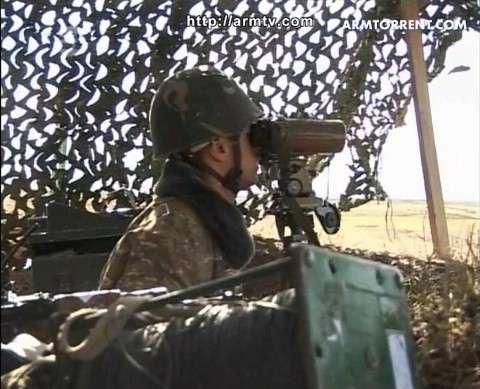
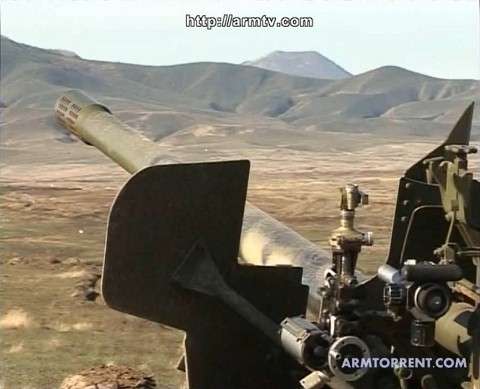
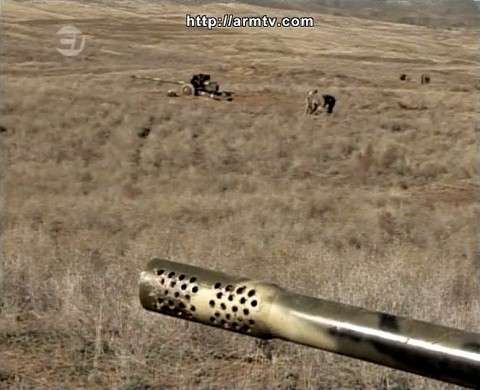
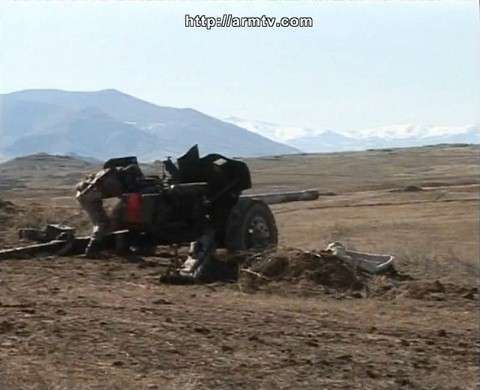
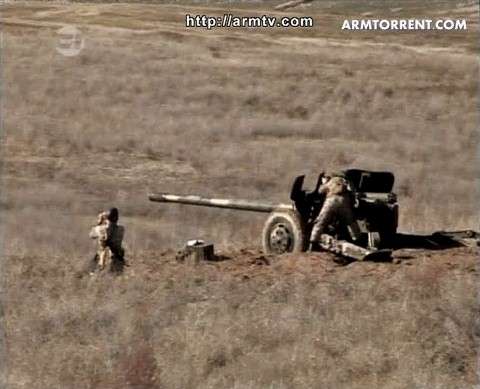

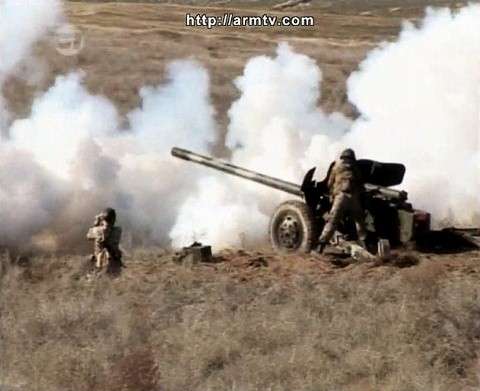






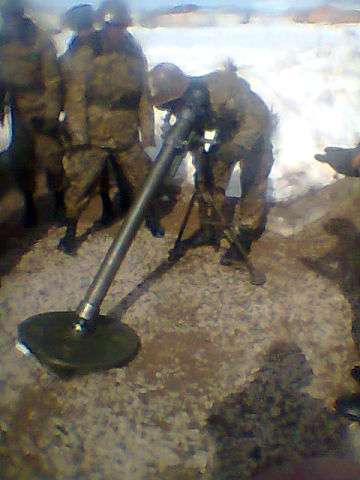
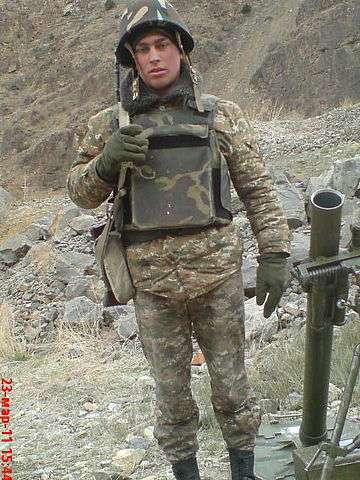
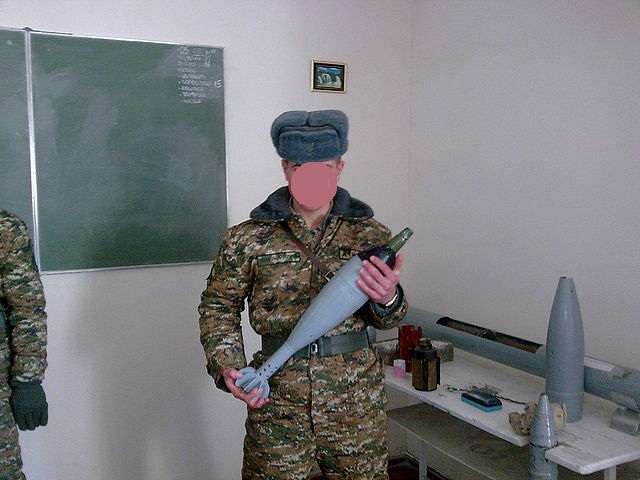
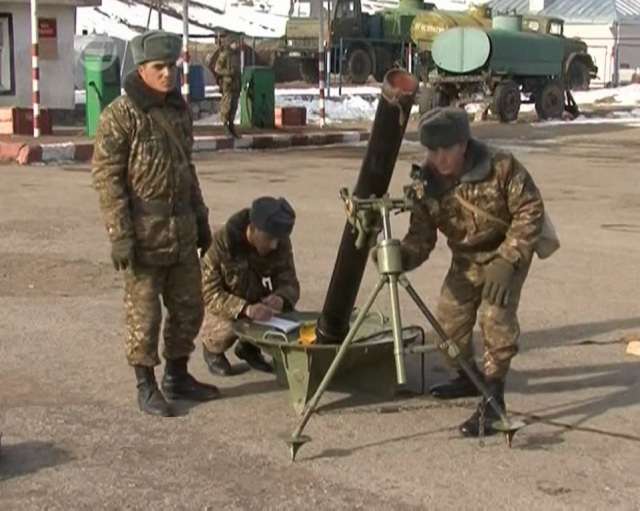
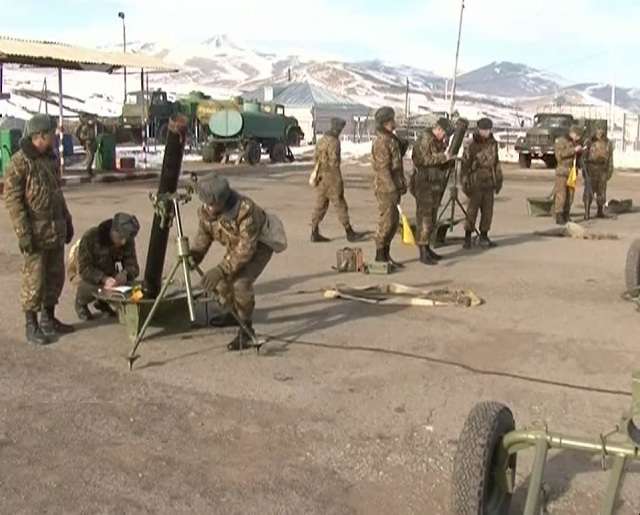
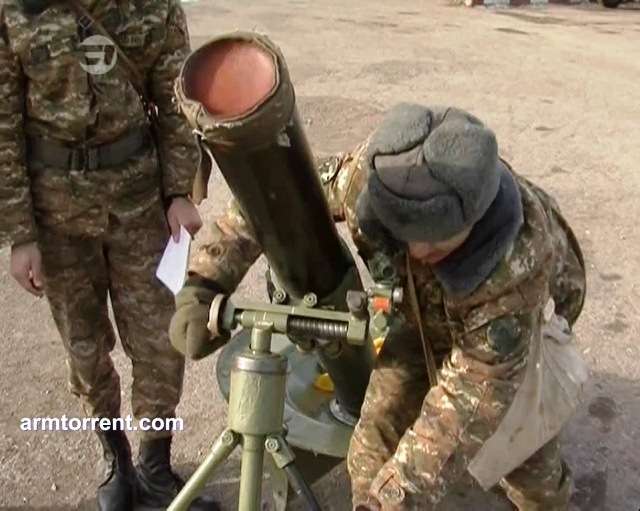


Comment